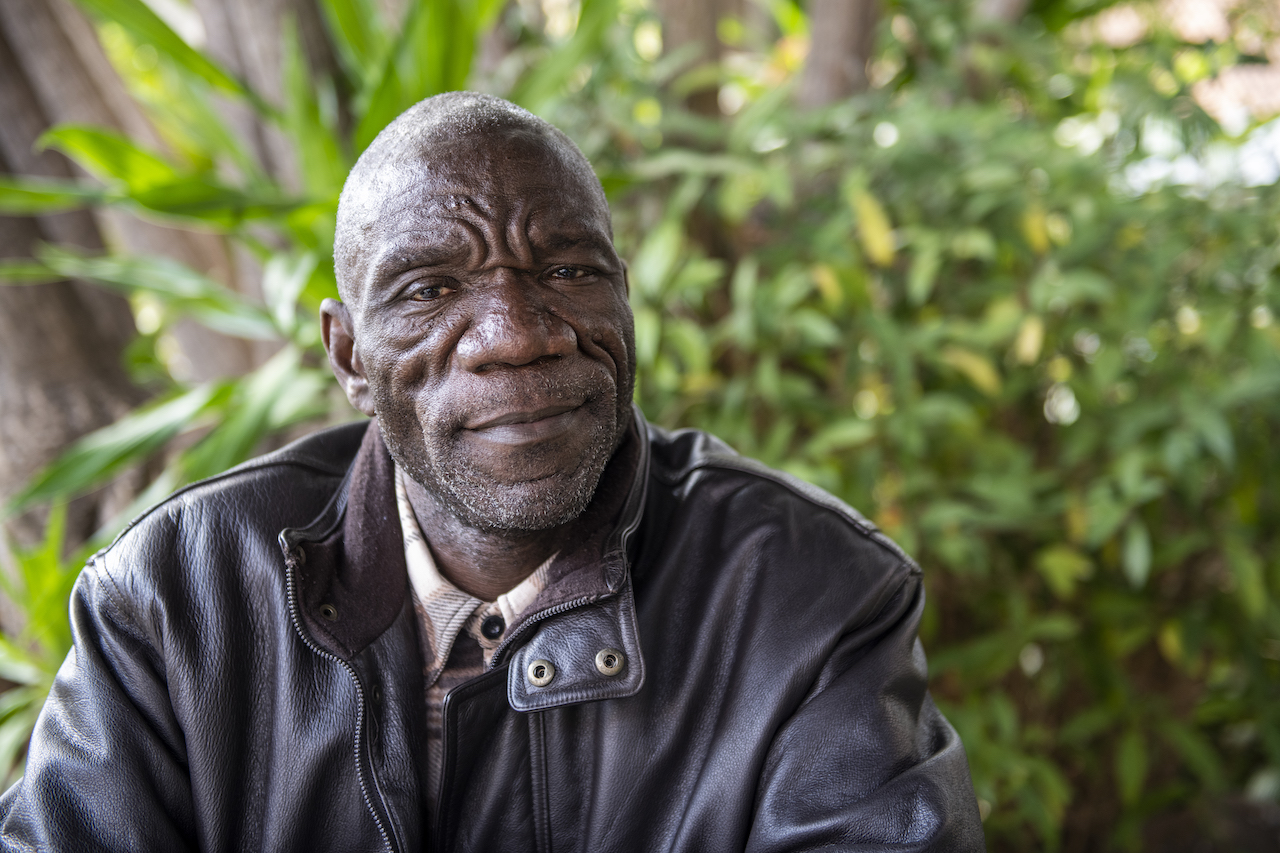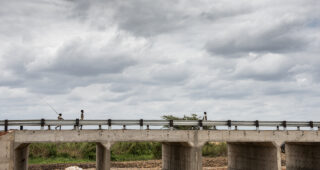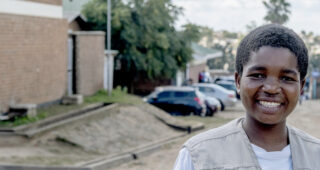Humanitarian Journalist
David Kamkwamba is the founder and executive director of the Network of Journalists Living with HIV (JONEHA).
When Kamkwamba was diagnosed with HIV in 2003, he was a chief producer at the Malawi Broadcasting Corporation, where he eventually rose to the position of controller of programmes, overseeing production and broadcast of all content. Rather than hide his status and retreat from his public role at a time when stigma and discrimination was rife in studios and newsrooms, Kamkwamba felt the need to act. At that time—as it is to-date—southern Africa was the global epicenter of the HIV pandemic, with high rates of transmission, high rates of death, and consequently, high rates of stigma and discrimination.
 David Kamkwamba is the founder and director of the Network of Journalists Living with HIV (JONEHA) in Malawi. JONEHA promotes the quality of life for journalists infected and affected with HIV.
David Kamkwamba is the founder and director of the Network of Journalists Living with HIV (JONEHA) in Malawi. JONEHA promotes the quality of life for journalists infected and affected with HIV.
“This is because people were … associating [HIV] with promiscuity and bad behavior,” says Kamkwamba. “When I caught wind that media interested organizations in southern Africa were organizing against HIV and related stigma I quickly jumped into it.”
Kamkwamba joined a southern Africa regional meeting for journalists in Lusaka, Zambia, where representatives from countries struggling with HIV gathered to discuss the epidemic. The group determined that progress against HIV stigma was stalled because people were not accepting the realities of the situation and could not identify with it. They needed ambassadors.
“By that time, I had known my status, so I willingly said, ‘I think I can take this agenda back to Malawi.’
“I have to emphasize that this was not an easy task. I was already a national household name because I was on the national radio as a very senior officer, and mind you, I started as a Christian broadcaster, and the church is where you find a lot of stigma and discrimination.
“By that time, I had known my status, so I willingly said, ‘I think I can take this agenda back to Malawi.’”
“I already had a big sphere of influence, not only in the country, but also beyond, within my media fraternity—but I gathered courage and started talking about [HIV] within national broadcasting and general media circles.”
Being open about his HIV status was incredibly difficult, notes Kamkwamba, but adds that his public status was also an advantage.
“I used to get calls from across the country from people of both low and high social standing, with remarks like, ‘What you said yesterday on the radio has encouraged me. I thought I was alone.’ I remember another time I was going to the bank and somebody just held my hand and said, ‘I’m a member of Parliament, and I think the work you’re doing is really encouraging. I think without what you have been saying, I would have died by now—because I’d lost hope.’
“Then you realize that your strength is the hope for other people.”
The Network of Journalists Living with HIV (JONEHA)
Kamkwamba did not stop there. As he shared his status, he saw the good it was doing, and found his passion for community organizing. He began reaching out to see if others wanted to join, and slowly others came forward. A group formed in 2008 and elected Kamkwamba to lead a formal agenda to fight stigma, especially in the studios and newsrooms. That’s how JONEHA was born.
“You get motivated because you know that by challenging stigma, by challenging HIV, by being open about it, you are saving lives somewhere. It warms my heart when I share about my status irrespective of the platform, because I know that for every message, for every audience I speak to, there always is a life that would be saved.”
In 2010, Kamkwamba left mainstream broadcasting. With hard work and a lot of good will from others, they slowly built their team, establishing coordinators for each region in Malawi, and mobilizing resources for a more HIV informed journalism and advocacy efforts to protect people living with HIV in general—and those specifically in the media workforce.
“I just had passion for it, to organize ourselves and see this thing grow,” he says. “I’m a person of influence. When I speak, people listen. I look at this as a calling.”
“You get motivated because you know that by challenging stigma, by challenging HIV, by being open about it, you are saving lives somewhere.”
In 2018, as a full-time activist and organizer, Kamkwamba began serving as the chairperson for the Malawian Civil Society Advocacy Forum (CSAF), which organizes more than 40 local HIV organizations into one strong voice that can advocate to parliament and other national stakeholders for resource mobilization on co-infection diseases like cervical cancer, policies to improve confidentiality in clinical settings, and anti-discrimination laws to protect people living with HIV. They also advocate for more resources for health whose more than 50% is donor funded and almost 100% for HIV (Global Fund, PEPFAR, CHAI, Gates Foundation, etc.) and related conditions like TB and cervical cancer, just like for malaria.
People Living with HIV Are Experts
“The strength of a person living with HIV is his or her experiences about the condition,” Kamkwamba says. “When you go to the facility, the doctor may talk about HIV on paper, but the actual experience is with the person living with HIV. The doctor may talk about side effects, but a person living with HIV is living with that side effect. And he can even explain to the doctor about that side effect more than the clinician would envisage. So in a way, the person living with HIV is an expert on the experience of living with the condition. If we try to mitigate HIV without that lived experience, then all we are doing is abstract, is theory, not something practical.”
“We feel that any program that does not recognize or value lived experience will not be successful and will not be sustainable. The person living with HIV has to be at the center of it.”
Fortunately, the government of Malawi has come to recognize the immense value that Kamkwamba and his peers bring to HIV programming and have created spaces for collaboration and consultation. For example, the Ministry of Health built a WhatsApp group including doctors and policymakers and invited Kamkwamba to add anyone else who would add value to the conversation, bringing experiences on the ground to the national level so they can track issues that come up and hear from those with HIV lived experiences.
“We feel that any program that does not recognize or value lived experience will not be successful and will not be sustainable. The person living with HIV has to be at the center of it.”
“Our advocacy approach is not that confrontational because we have not found that very helpful,” Kamkwamba says. “There’s a role that we can play together; to generate evidence based on perceptions of recipients of care on the quality of services they receive. With this information we mobilize national stakeholders—including funders, policymakers, program planners and implementers—on issues that affect the management of the national [HIV] response, and we are grateful for that. When we invite them, they listen to us and they’re there to respond, which we don’t take for granted.”
After a long and successful media career followed by years of community organizing, Kamkwamba is considering a well-earned retirement, but having cultivated such important relationships with key national stakeholders, in a country that still faces so much stigma, it is hard to leave.
“I’ve run a good race in terms of fighting stigma, I’ve run a good race in terms of contributing to my country on issues that affect the national response [to HIV], but there is still so much to fight for. Even today, people are still dying, and many of them are dying because they’re not getting tested, or they lost hope, or they fear treatment or they are not taking it adherently as a lifelong drug: they are dying because of stigma which causes doubts and fear for decisions they need to take to prolong life.”
Kamkwamba is currently mentoring others to take up the fight as the next generation leads the HIV response, as he paved the way for so many others in Malawi to share their HIV status, fight stigma, and cultivate a more prosperous community for people living with HIV.
Through the work of JONEHA, Kamkwamba has come to know Veena Sampathkumar, the executive director of the Elizabeth Glaser Pediatric AIDS Foundation (EGPAF) in Malawi. On one occasion, Sampathkumar invited the JONEHA team to interact with the EGPAF communications team. It was a beginning of a long and productive relationship. The two organizations continue to thrive their relationship based on a common background.
Eric Bond and Sarah Denison-Johnston
Malawi
Policy & Advocacy



